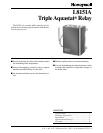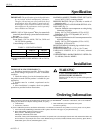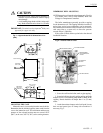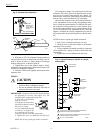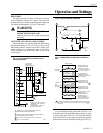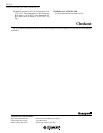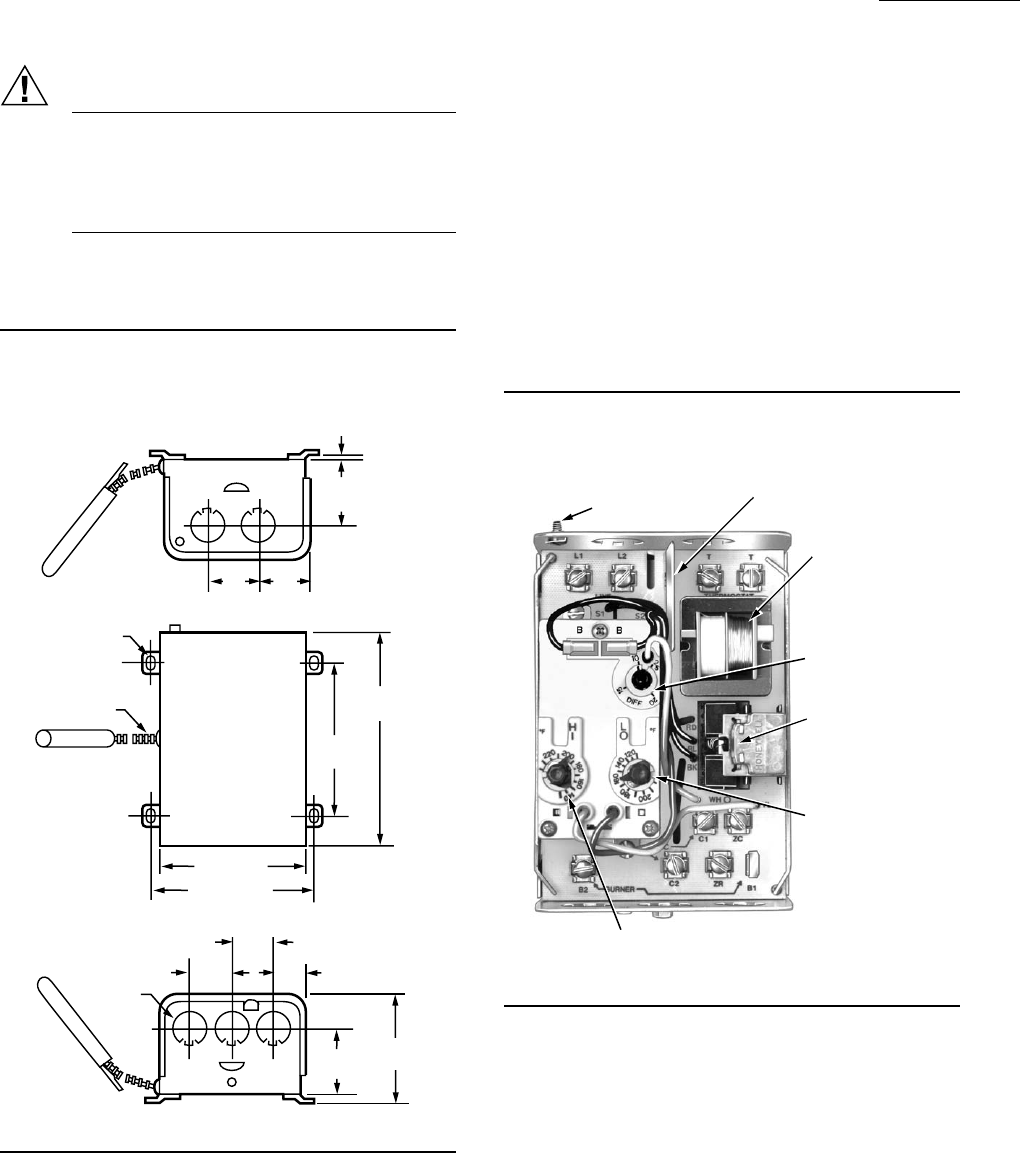
3 60-2553—3
L8151A
INSTALLATION
IMMERSION WELL MOUNTING
NOTE: Immersion well must be ordered separately. For a list
of available wells, refer to form 68-0040, Wells and
Fittings for Temperature Controllers.
The boiler manufacturer generally provides a tapping
for the immersion well. This tapping should be located at a
point where typical water temperature can be measured.
The immersion well must never be located close to a hot or
cold water inlet or a steam coil, or where the pressure
exceeds 200 psi (1380 kPa).
If the system is filled, drain to a point below the selected
installation location.
Fig 2— Internal view of L8151.
CAUTION
• Disconnect power supply before beginning in-
stallation to prevent electrical shock or equip-
ment damage.
• Avoid making sharp bends or kinks in the capil-
lary. Bends should be no less than 1 in. (25 mm).
IMPORTANT: Terminals on these Aquastat
®
Relays are
approved for copper wire only.
Fig. 1—Approximate L8151 dimensions in in.
(mm).
1-1/4
(32)
1-1/4
(32)
13/16
(21)
2-3/6
(56)
3-5/16
(84)
4-23/32 (120)
4-5/16 (110)
KNOCKOUT
FOR 1/2 IN.
CONDUIT (5)
CAPILLARY
30 IN. (762)
13/64 X 21/64 (4)
4-1/2
(114)
6-1/8
(156)
1-1/2
(38)
1-7/16
(37)
1/8
(3)
2-3/16
(56)
M8892
MOUNTING THE CASE
Mount the case in a convenient location near the boiler.
Remember that the shielded capillary must reach from the
case to the immersion well. This maximum ambient tem-
perature of the selected location must not exceed 150°F
(66°C) at the case, 265°F (130°C) at the sensing element.
M8893
VOLTAGE BARRIER
DIFFERENTIAL
SETTING
CIRCULATOR
RELAY
LOW LIMIT SETTING
HIGH LIMIT SETTING
GROUNDING SCREW
TRANSFORMER
FOR THERMOSTAT
CIRCUIT
1. Screw the well into the boiler, tank, or pipe tapping.
2. Insert the bulb into the well, pushing tubing until bulb
bottoms in well. Avoid making sharp bends or kinks in the
capillary. Bends should be no sharper than 1 in. (25 mm)
radius.
3. Attach the retainer clamp to end of well spud. Loosen
draw nut and spread jaws of clamp with screwdriver if
necessary, Fig. 3.



